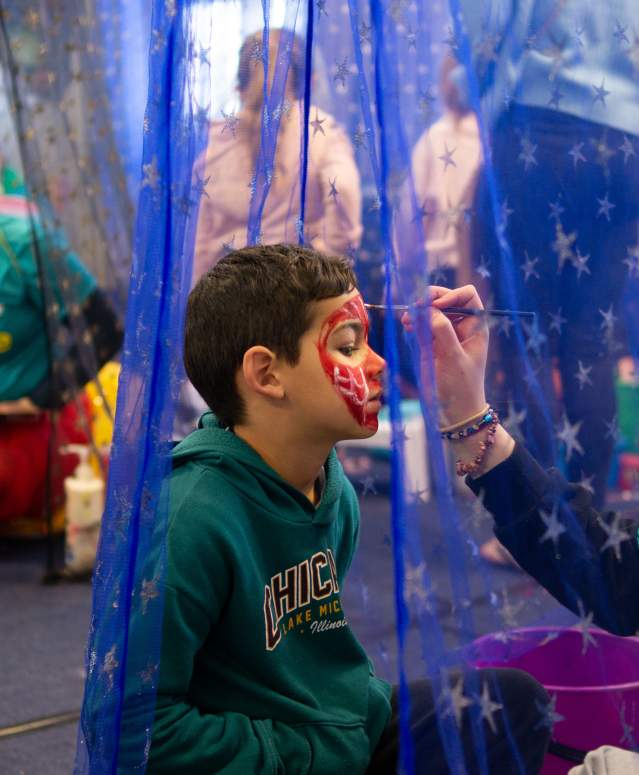Volunteers & Fundraising Groups
Having the support of volunteers and fundraising groups to assist with the planning and delivery of your event can be a mutually beneficial arrangement.
Many events would be unviable without the support of individuals and groups volunteering their time and labour. To ensure a fair exchange between the parties, it is prudent for event organisers to look at ways they can add value to the experience of their volunteers through acknowledgement, koha, experience, training opportunities, work references and more.
Tips:
Fundraising groups
There are many types of groups that may be interested in events as a way to raise funds. In many cases, they may be willing to support your event planning and delivery efforts if your event provides an opportunity to raise funds for their organisation or cause. Types of fundraising groups include:
- charities
- schools
- sports teams
- culture groups.
There are a wide variety of event roles and responsibilities that could be carried out by fundraising groups before and during an event, such as:
- hand out promotional event material
- clean up rubbish
- sort recycling
- conduct intercept surveys
- sell merchandise.
If you are interested in working with fundraising groups to support the planning and delivery of your event, it is a good idea to:
- collate a list of suitable roles and responsibilities
- collate a list of suitable local groups that are likely to be interested in fundraising and align with the goals and values of your event
- connect with local groups and offer them the opportunity to work with your event – discuss what roles are available and agree on a mutually beneficial arrangement
- manage your event’s relationship with the fundraising groups you are working with, before, during and after the event.
Volunteering New Zealand
Tūao Aotearoa - Volunteering New Zealand is an association of volunteer centres and national and regional organisations with a commitment to volunteering in Aotearoa New Zealand. The Best Practice Guidelines – Te Anga Whaitake have been designed by Volunteering New Zealand to support managers of volunteers at organisations and events that have volunteer support. These guidelines include seven best practice areas based around the volunteering life cycle, which puts the volunteer at the centre. The best practice areas cover:
- recruiting and engaging volunteers
- welcoming and onboarding volunteers
- volunteer support, leadership and management
- training and growing volunteers
- feedback and recognition
- celebrating volunteer impact
- exiting volunteers.
Volunteer recruitment
- Develop clear and detailed descriptions of volunteer roles and responsibilities.
- Identify and target groups or individuals likely to be interested in volunteering, such as local community groups, students, and clubs.
- Create an easy and accessible application process for volunteers, including online registration forms if applicable.
- Register your volunteer roles on online volunteering opportunity websites such as Seek volunteer.
- Become a member of your regional volunteer centre to recruit and find volunteers in your region.
Volunteer training and orientation
- Provide thorough training sessions to ensure volunteers understand their roles, event logistics, and safety protocols.
- Organise orientation sessions to familiarise volunteers with the event site, key personnel, and emergency procedures.
- Supply volunteers with necessary materials and resources, such as uniform, maps, schedules, and contact lists.
Volunteer coordination and communication
- Assign a dedicated volunteer coordinator to manage recruitment, training, scheduling, and communication.
- Maintain regular communication with volunteers before, during, and after the event through emails, newsletters, or social media.
- Conduct on-site briefings to provide last-minute instructions and address any questions or concerns.
Volunteer scheduling and assignments
- Create shift schedules that are manageable and considerate of volunteers’ availability and preferences.
- Assign tasks based on volunteers’ skills, interests, and experience to ensure they are comfortable and effective in their roles.
- Ensure volunteers have scheduled breaks and access to rest areas to prevent fatigue.
Volunteer motivation and engagement
- Show appreciation for volunteers through recognition programmes, certificates, thank you notes, or public acknowledgments.
- Provide incentives, such as event merchandise, meals, or small tokens of appreciation.
- Organise social activities or gatherings for volunteers to build camaraderie and enhance their event experience.
Legal and compliance
- Ensure volunteers sign agreements outlining their roles, responsibilities, and any relevant policies, such as confidentiality and code of conduct.
- Conduct background checks for volunteers if required, especially for roles involving children, vulnerable populations or handling money.
Health and safety
- Educate volunteers on health and safety protocols, including emergency procedures and first aid.
- Provide any necessary protective equipment or attire for volunteers based on their roles.
- Collect emergency contact information from all volunteers and ensure they know who to contact in case of an emergency.
Volunteer feedback and improvement
- Conduct post-event evaluations with volunteers to gather feedback on their experience and identify areas for improvement.
- Use surveys or feedback forms to collect volunteers’ opinions and suggestions.
- Hold debrief sessions to discuss what worked well and what could be improved for future events.
Post-event recognition
- Host a thank-you event or celebration for volunteers to show appreciation for their contributions.
- Send follow-up communication, such as thank-you emails or newsletters, highlighting the success of the event and acknowledging volunteers’ efforts.
- Provide certificates of participation or letters of recommendation for volunteers to use in their personal or professional endeavours.
Useful Links:
- Volunteering New Zealand | Tools for volunteering leadership & management
- Volunteering New Zealand | Best Practice Guidelines – Te Anga Whaitake
- Volunteering New Zealand | Vetting volunteers and background checks
- Volunteering New Zealand | Volunteers and the law
- Seek volunteer | Volunteer opportunities
- Volunteer South | volunteersouth.org.nz
- Citizens Advice Bureau | Search our Community Directory
Have you considered?
- Where will you source volunteers and fundraising groups from? Visit volunteering opportunity websites such as Seek volunteer or Citizens Advice Bureau's Community Directory.
- What roles and responsibilities within your event organisation could be supported by volunteers or fundraising groups?
- How will you recognise the contribution of volunteers?
- Learn more about roles and responsibilities for your events team in the Building Your Team section.

